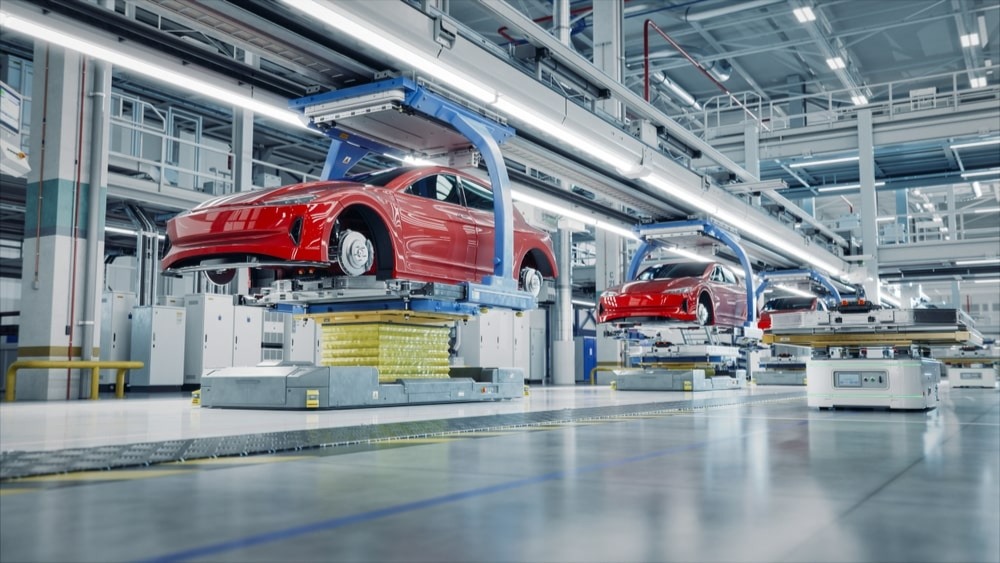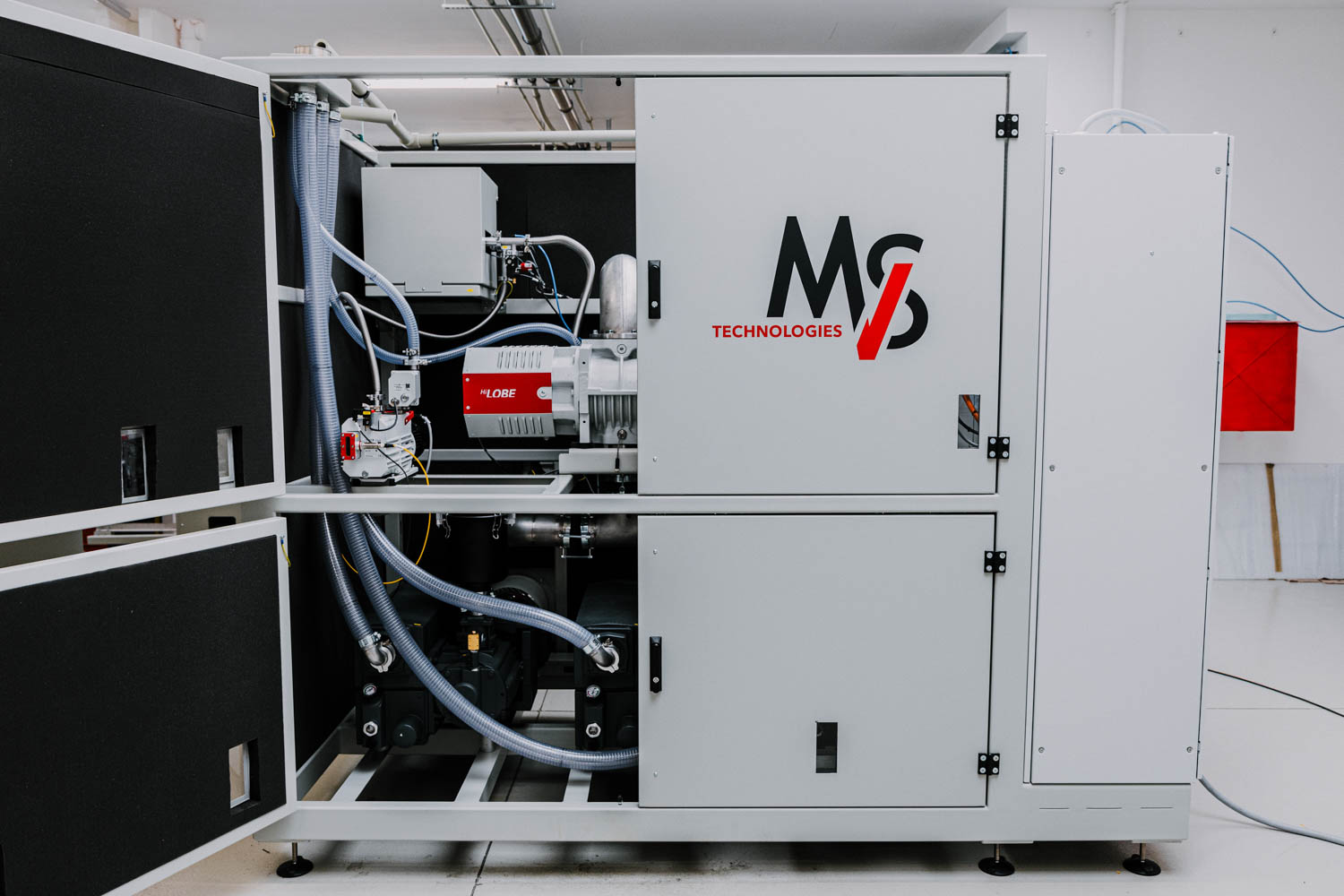Leak testing for the automotive industry
In the automotive industry, leak testing plays a pivotal role in maintaining vehicle safety and reliability. Identifying and addressing leaks in fuel systems, air conditioning units, and brake assemblies is crucial. Not only does this ensure optimal performance, but it also adheres to stringent regulatory standards. Effective leak testing helps prevent potential hazards, such as power loss and fire risks, which could otherwise lead to costly recalls and repairs. By implementing leak testing procedures, manufacturers can guarantee that their vehicles meet both safety and environmental requirements, thus safeguarding the end-users and their brand reputation. Let's dive into the topic, and explore everything we need to know about leak testing for the automotive industry!
Helium leak testing: key method for automotive components
Leak testing is vital in the automotive industry, and helium leak testing stands out as one of the most effective methods. The process begins with introducing helium gas into the component being tested. Helium, a lightweight and inert gas, is perfect for this purpose due to its small atomic size, which allows it to easily escape through even the tiniest leaks.
A helium detector is then employed to identify any helium leaking from the component. This detector is highly sensitive and can pinpoint leaks that other methods might miss. The helium leak testing machine typically comprises a helium gas supply, a vacuum pump, and the helium detector itself. These components work in unison to ensure precise detection of leaks, making the vehicle safe and reliable.
Applications of helium leak testing in the automotive industry
Helium leak testing is versatile and finds applications across various critical automotive systems.
Fuel systems
Fuel leaks can be catastrophic, leading to fire hazards and power loss. Helium leak testing ensures that fuel tanks, lines, and injectors are secure and free from leaks.
Air conditioning systems
For optimal performance, air conditioning systems must maintain pressure and contain refrigerants. Helium leak testing detects leaks in the condenser, evaporator, and other components to ensure efficiency and prevent environmental harm.
Brake systems
Brake fluid leaks can significantly compromise a vehicle’s safety. Helium leak testing of brake lines, hoses, and valves ensures that the braking system is airtight and reliable, guaranteeing the driver's safety.
In the realm of automotive leak testing, helium leak testing offers a high level of precision and reliability essential for the safety and efficiency of vehicles. Its applications across various systems such as fuel, air conditioning, and brakes underscore its versatility and critical role in automotive manufacturing. By ensuring that these systems are free from leaks, helium leak testing contributes significantly to vehicle reliability and safety, meeting the stringent standards expected in the automotive industry.
Common challenges in helium leak testing
Helium leak testing is a sophisticated technique that offers incredible precision but comes with its set of challenges. Ensuring correct tooling compatibility, accurately locating leaks in complex components, and managing false positives requires a blend of expertise and advanced technology. Let’s delve into these common issues and explore potential solutions.
Tooling compatibility
One of the primary challenges in helium leak testing is ensuring that the tooling is compatible with the tested component. The accuracy of the leak test heavily depends on the tools used to interface with the part. Incorrect or poorly designed tooling can lead to inaccurate results, potentially missing leaks or identifying non-existent ones.
To overcome this, manufacturers must invest in custom-designed tooling tailored to their specific leak testing machines and components. This requires close collaboration between the tooling designers and the leak testing machine operators. Ensuring that the tooling fits perfectly and functions as intended can significantly enhance the accuracy of the test results.
Locating leaks in complex components
Another significant challenge is locating the exact position of leaks, particularly in complex components like fuel systems or air conditioning units. These components often have intricate designs, with multiple potential points of failure. Finding a small leak in such a labyrinthine structure can be akin to finding a needle in a haystack.
Advanced helium leak testing machines come equipped with sensors and advanced technological solutions. However, the skill and experience of the operator also play a crucial role. Additionally, implementing a systematic testing approach, where each component is tested thoroughly through multiple stages, can aid in more precisely identifying leaks.
Managing false positives
False positives are another challenge that can complicate the leak testing process. A false positive occurs when the machine mistakenly identifies a leak where there is none. This can happen due to various reasons, including improper calibration, residual helium from previous tests, or even environmental factors.
To manage and minimise false positives, it is essential to maintain rigorous calibration and validation protocols. Regularly calibrating the helium leak testers ensures that they provide accurate readings. Implementing stringent environmental controls around the testing area can also help in reducing false readings.
Navigating the common challenges in helium leak testing requires a mix of the right equipment, expert knowledge, and strict procedural controls. By addressing issues related to tooling compatibility, enhancing the precision of leak detection, and minimizing false positives, manufacturers can ensure more reliable and accurate testing outcomes. This ultimately leads to higher quality, safer automotive components, and greater peace of mind for manufacturers and consumers.
Leak testing for the automotive industry with MVS
At MVS, we understand the unique demands of this industry and specialise in automotive leak testing solutions. Our advanced methods mitigate risks posed by leaks in fuel, exhaust, cooling, and brake systems. We utilise modular interchangeable tool systems that offer flexibility and efficiency in production. Additionally, our software ensures complete traceability and maximises system availability while minimising maintenance needs.
By adhering to rigorous specifications, we help you meet regulatory standards and safeguard your reputation. Explore our expertise further or contact us to discuss your upcoming projects.


